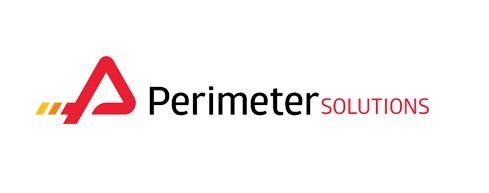Have you ever wondered what those (usually reddish) aerial discharges that can be spotted during large forest fires are? They are known as retardants, and they are essential chemicals to extinguish the most dangerous and uncontrollable fires, when water is not enough. And – do you know how many companies are qualified to produce these chemicals? The answer is: very few.
In 2019, Nick Howley, better known for founding TransDigm (link), one of the most profitable companies in recent times, embarked on a new project called EverArc Holdings together with Will Thorndike (author of “The Outsiders”), Tracy Britt Cool (who was Warren Buffett's protégée until she tried to recreate a smaller-scale Berkshire Hathaway on her own) and several former employees of the private equity firm Oak Hill Capital. EverArc Holdings was born as a British Virgin Islands-based acquisition vehicle to buy a company with similar characteristics to TransDigm. The goal was to deliver private equity-like returns with the liquidity of a public market.
Investors were so excited by the prospect that Nick Howley and his team could replicate TransDigm’s story that EverArc Holdings was listed at a premium of 40% to NAV. Nearly two years later, Perimeter Solutions (Perimeter), the leading manufacturer of firefighting foams and retardants, was acquired by EverArc. The $2 billion deal was closed with private equity fund SK Capital, which had acquired Perimeter (a division of Israel Chemicals) for $1 billion in 2017. I must admit that at first I was surprised that Howley, one of the most remarkable capital allocators of recent decades, had paid twice as much for a company that had barely grown its sales by 8.6% and EBITDA by 7% since being acquired by SK Capital. Either Nick Howley and his team had found a very good opportunity to apply the lessons learned with TransDigm to Perimeter, or they were in a real hurry to close the deal – whatever the price.
After having studied the evolution of the business since the acquisition of EverArc, and after getting to know the management’s compensation system, the latter option suddenly seems much more plausible to me. The board of directors is entitled to a fixed annual advisory amount equivalent to 1.5% of the total shares outstanding until 2027, regardless of what the business does (and of the value created for shareholders). Likewise, they are also entitled to a variable annual advisory amount dependent on the appreciation of the market price of ordinary shares (18% of the increase in market value with a high-water mark provision) until 2031. Nick Howley and his team believe the program is designed to align their interests with those of shareholders, but more and more investors are questioning this. Some shareholders also believe the compensation system is controversial, to say the least. Although shareholders are already starting at a disadvantage, they believe Perimeter's growth prospects are attractive enough to generate outstanding returns.
At first glance, Perimeter brings together several interesting characteristics. The company supplies products that, while critical to its customer base, represent a very small portion of the entire value chain. The business is asset-light (capex as a percentage of sales is usually below 3%) and not very capital-intensive (EBIT margins have ranged between 30 and 40% in recent years). Perimeter does not need to make huge investments in R&D because it enjoys an almost monopolistic position due to high regulatory barriers to entry. Growth prospects are also strong, as forest fires are becoming larger and more frequent. Additionally, the management team is confident that there is plenty of room to increase recurring sales, reduce cyclicality and continue raising prices without losing business volume.
Having spent the last month reading in depth about Perimeter, I believe we have every reason to believe that the management team will face many more complexities and challenges than they are used to.




